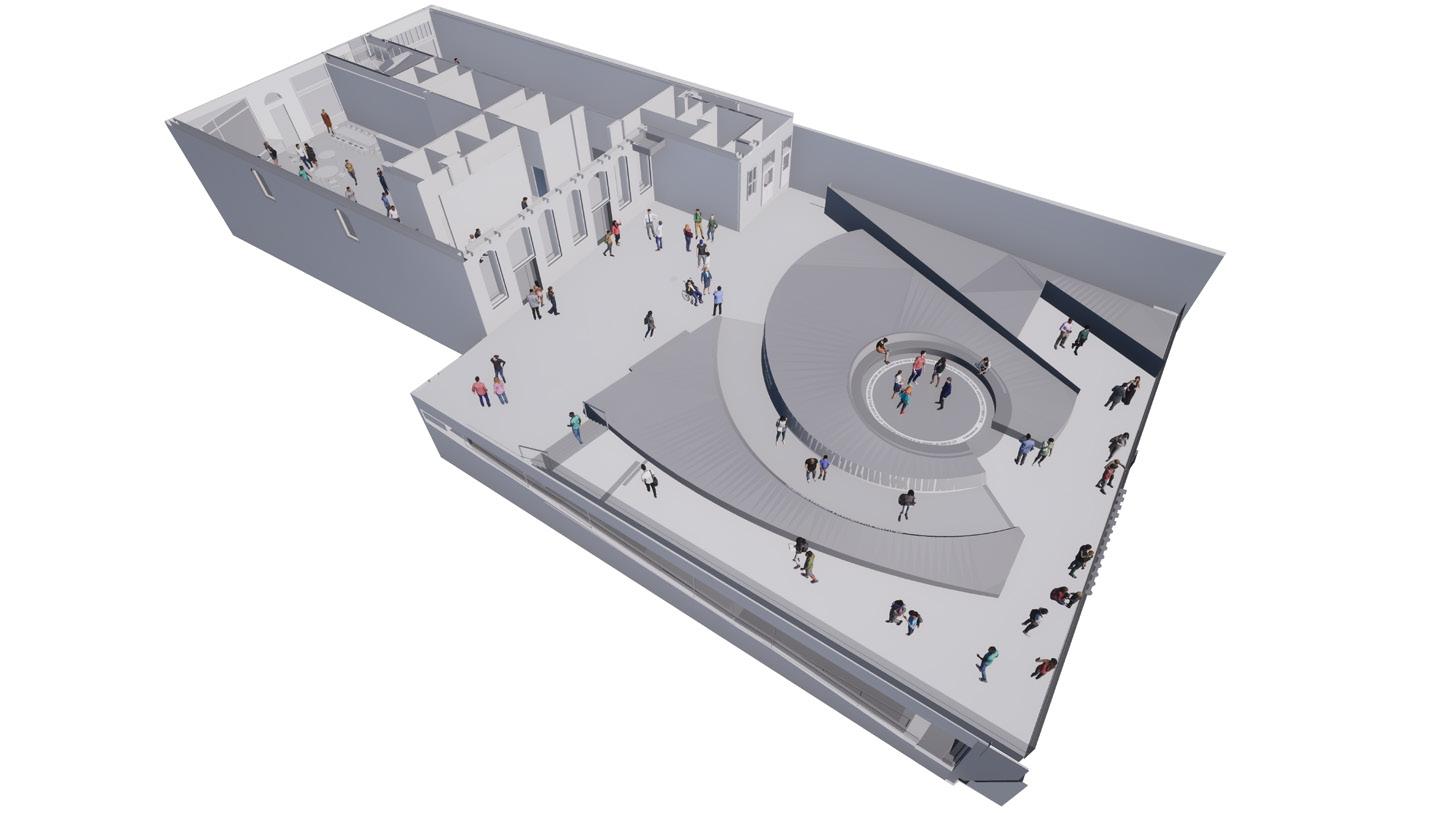LEGACY BUILDING



Dr. Russ Wigginton, President
Herbert Hilliard Board Chair
Joseph R. (Pitt) Hyde Executive Committee Chair
Board Executive Committee
Gregory Duckett
Rose Jackson Flenorl
Lisa Krupicka
Connie Lewis Lensing
Johnny Moore
Bill Rhodes
Cathy Ross
Board Members
Raumesh Akbari
Pamela Alexander
Darrell Cobbins
Nnaemeka (Meka) Egwuekwe
Preston Frazer
Kathy Buckman Gibson
Aram Goudsouzian
Rabbi Micah Greenstein
Shaila Karkera
Jonathan (Jon) Moorehead
William (Billy) Orgel
Elliot Perry Gail Tyree
Michael Ugwueke
Sylvia Williams
Spence Wilson, Jr.
Andrew Mathewes
Senior Director,



DR. MARTIN LUTHER KING JR. HAD A DREAM.
A more inclusive America - and world. More diverse in vision and understanding, more equal in opportunity and support.
A changed America, not by the rage of violence, but by the non-violent change of awareness and example.
Free from the bondage of hate and division. Free from the despair and desperation of exclusion and denial.
Free to realize our greatest potential as a united people, as a nation. As a beacon for the world.
That dream did not die on our balcony. That dream lives in everything we have done and will do.
That dream guides us, inspires us, and challenges us for what’s next, for what we must do.
With you.
BECOME THE DREAM.
JOIN US ON THIS JOURNEY. Over 300,000 people from around the world mecca to the National Civil Rights Museum each year to pay tribute to Dr. Martin Luther King, Jr. and to learn about the American Civil Rights Movement. What began in 1991 as the first civil rights museum in the country, has grown into an internationally recognized historic site and transformational experience.
The Museum’s current exhibitions, housed within the former Lorraine Motel footprint, guide visitors along the journey from enslaved African people arriving to the Americas and continues to tell the civil and human rights story of over three hundred fifty years of struggle, resolve and triumph. Visitors ultimately complete the experience with a view of Room 306 – both the motel room and outside balcony where Dr. King spent his final days in Memphis before he was tragically assassinated on April 4, 1968.
But what has happened since 1968? How has Dr. King’s legacy inspired civil and human rights movements around the world? Who are the brave ones that picked up the torch and soldiered onward? What progress has been achieved and in what ways are we still challenged? The renovation of the Legacy Building and Founders Park will provide an opportunity for the post-1968 story to be told and to inspire the next generation of catalysts who will lead positive social change.




The Legacy Building, also known as the Boarding House where Dr. King’s alleged assassin laid in wait and fired the fatal shot, will be renovated with powerful exhibitions that draw from Dr. King’s last book Where Do We Go From Here? Chaos or Community. This theme illustrates the ongoing tension that exists when a variety of events, actions, policies and other factors push American society in either direction as we constantly navigate along the continuum.
The Legacy Building exhibitions will explore six key themes: education, labor/jobs, poverty, gender equity, criminal justice/mass incarceration, and housing. Also included is a major exhibition featuring the Poor People’s Campaign, Digital Flex Space, Group Engagement Facilitation Room and the Freedom Award Lounge, with a digital wall of past recipients.
For the past 20 years, Founders Park has been a gathering place for the community in times of crisis – as a site for citizens to exercise non-violent protest, as a place of healing and reconciliation, and of reflection inspired by Dr. King’s legacy. The new BlueCross Healthy Place at Founders Park will feature an enlarged space and better accommodation for the Museum’s visitors from around the world.
This new outdoor area, adjacent to the Legacy Building and directly across from the Lorraine Motel Building, will have additional seating areas, audio and projection technology, and landscaped reflection areas. The park will be thoughtfully renovated to accommodate large tours and school groups, as well as the Museum’s signature events during King Day, April 4th, and other community gatherings.
